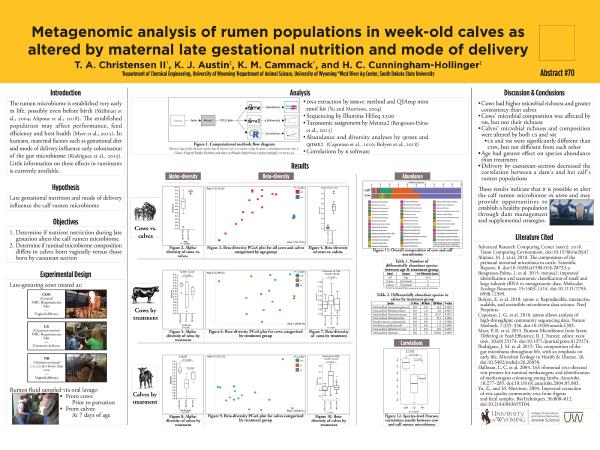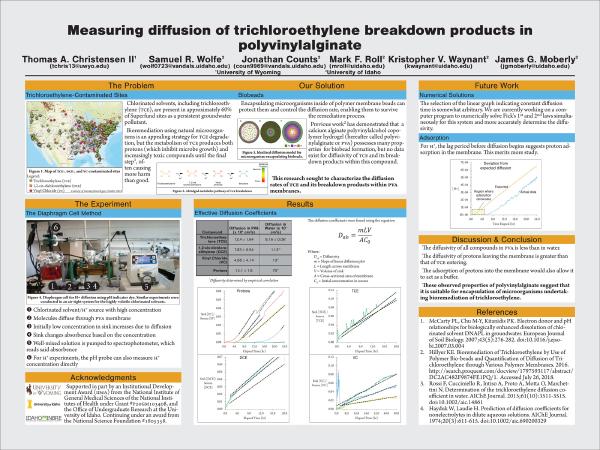Category: Poster
Bovine papillomavirus (BPV) is a major cause of reproductive failure in cattle.
In bulls, penile papillomas caused by BPV may cause reluctance to breed, and is
always a cause to fail an animal on a breeding soundness exam. Historically, it
has been thought that BPV was transmitted via direct contact and could be
controlled by managing clinically presenting animals in the herd, but more
recent evidence suggests alternative modes of transmission. BPV has been found
repeatably in clinically healthy …

Early colonization of the rumen microbiome is critical to host health and long
term performance. Factors that influence early colonization include maternal
factors such as gestational nutrition and mode of delivery. Therefore, we
hypothesized that late gestational nutrition and mode of delivery would
influence the calf rumen microbiome. Our objectives were to determine if
nutrient restriction during late gestation alters the calf rumen microbiome and
determine if ruminal microbiome composition …

Trichloroethylene (TCE), a toxic and carcinogenic contaminant, presents unique
challenges for cleanup because of its water solubility, density, and volatility.
Bioremediation of TCE is a promising cleanup method; however, metabolism of TCE
results in acid generation that inhibits remediating microorganisms. Calcium
alginate(CA)-polyvinylalcohol (PVA) hydrogels show promise for protecting
remediating microbes, however diffusion of TCE or its byproducts through these
polymers is unknown. To …
Trichloroethylene (TCE) is a toxic and carcinogenic contaminant that presents
unique challenges for cleanup because of its density and volatility. Use of
microorganisms may be a promising remediation method, however metabolism of TCE
results in acid buildup, which consequently impedes the ability of
microorganisms to perform this remediation. Polyvinylalginate (PVA) shows
promise as a useful shield for microorganisms carrying out bioremediation of TCE
by surrounding them in a protective …